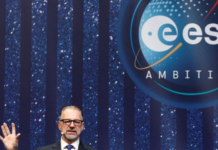If good things come to those who wait, do bad things come to those who don’t? In its citation for Ethiopian Prime Minister Abiy Ahmed’s 2019 Nobel Peace Prize, the awarding committee celebrated his “efforts to achieve peace and international cooperation,” particularly in securing the landmark truce and easing of tensions with neighboring Eritrea not long after he came to power in 2018. Abiy was hailed as a transformational figure in the Horn of Africa, bent on liberalizing his nation of 117 million people and reforming a notoriously sclerotic state long dominated by a single ruling coalition.
“The art of building peace is a synergistic process to change hearts, minds, beliefs and attitudes that never ceases,” Abiy said during his valedictory Nobel lecture in December 2019. “Before we can harvest peace dividends, we must plant seeds of love, forgiveness and reconciliation in the hearts and minds of our citizens.”
A year later, though, Ethiopia was harvesting far more strife than peace. Abiy’s attempts at opening up the country’s political space led to deepening polarization among its ethnic factions. Violence and unrest intensified, as did political repression. Abiy said his government needed time to implement reforms and “unlearn” the “mind-set and tactics of the past.” Analysts of the Norwegian Nobel committee’s decision-making process started to fret that they had made a mistake.













